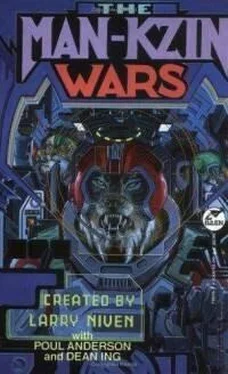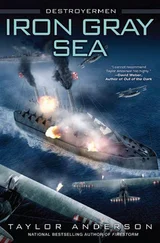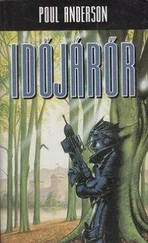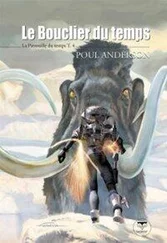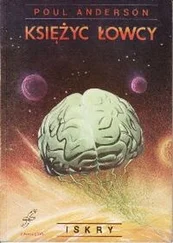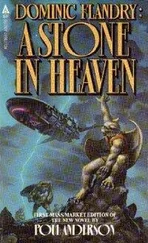Poul Anderson - Iron
Здесь есть возможность читать онлайн «Poul Anderson - Iron» весь текст электронной книги совершенно бесплатно (целиком полную версию без сокращений). В некоторых случаях можно слушать аудио, скачать через торрент в формате fb2 и присутствует краткое содержание. Год выпуска: 1988, ISBN: 1988, Издательство: Baen, Жанр: Космическая фантастика, на английском языке. Описание произведения, (предисловие) а так же отзывы посетителей доступны на портале библиотеки ЛибКат.
- Название:Iron
- Автор:
- Издательство:Baen
- Жанр:
- Год:1988
- ISBN:978-0-671-65411-5
- Рейтинг книги:4 / 5. Голосов: 1
-
Избранное:Добавить в избранное
- Отзывы:
-
Ваша оценка:
- 80
- 1
- 2
- 3
- 4
- 5
Iron: краткое содержание, описание и аннотация
Предлагаем к чтению аннотацию, описание, краткое содержание или предисловие (зависит от того, что написал сам автор книги «Iron»). Если вы не нашли необходимую информацию о книге — напишите в комментариях, мы постараемся отыскать её.
Iron — читать онлайн бесплатно полную книгу (весь текст) целиком
Ниже представлен текст книги, разбитый по страницам. Система сохранения места последней прочитанной страницы, позволяет с удобством читать онлайн бесплатно книгу «Iron», без необходимости каждый раз заново искать на чём Вы остановились. Поставьте закладку, и сможете в любой момент перейти на страницу, на которой закончили чтение.
Интервал:
Закладка:
“It seems clear, therefore, that this system formed out of a cloud which had been enriched by mass loss from older stars in their red giant phase. A few supernovae may have contributed, too, but any elements heavier than iron which they may have supplied are so scant that we will only find them by mass spectrography of samples from the solid bodies. They may well be nonexistent. Those older stars must have come into being as soon after the Beginning as was physically possible, in a proto-galaxy not too far then from the matter which was to become ours, but now surely quite distant from us.”
“As we dared hope,” said the Crashlander. Tears glimmered in her eyes like dew on rose petals.
“Oh, good for you!” called Yoshii.
“A relic-hell, finding God’s fingerprints,” Carita said, and clapped a hand to her mouth. Ryan grinned, nobody else noticed.
“How many planets?” asked Saxtorph.
“Five,” Tregennis replied.
“Hm. Isn’t that kind of few, even for a dwarf? Are you sure?”
“Yes. We would have found anything of a size much less than what you would call a planet’s.”
“Especially since the Bode function is small, as you’d expect,” Dorcas added. Having worked with the astronomers, she scarcely needed this session. “The planets huddle close in. We haven’t found an Oort cloud either. No comets at all, we think.”
“Outer bodies may well have been lost in the collision that sent this star into exile,” Laurinda said. “And in fifteen billion years, any comets that were left got… used up.”
“There probably was a sixth planet until some unknown date in the past,” Tregennis stated. “We have indications of asteroids extremely close to the sun. Gravitational radiation—no, it must chiefly have been friction with the interstellar medium that caused a parent body to spiral in until it passed the Roche limit and was disrupted.”
“Hey, wait,” Saxtorph said. “Dorcas talks of a Bode function. That implies the surviving planets are about where theory says they ought to be. How’d they avoid orbital decay?”
Tregennis smiled. “That’s a good question.”
Saxtorph laughed. “Shucks, you sound like I was back in the Academy.”
“Well, at this stage any answers are hypothetical, but consider. In the course of its long journey, quite probably through more galaxies than ours, the system must sometimes have crossed nebular regions where matter was comparatively dense. Gravitation would draw the gas and dust in, make it thickest close to the sun, until the sun swallowed it altogether. As a matter of fact, the planetary orbits have very small eccentricities—friction has a circularizing effect and their distances from the primary conform only roughly to the theoretical distribution.” Tregennis paused. “A further anomaly we cannot explain, though it may be related. We have found—marginally; we think we have found—molecules of water and OH radicals among the asteroids, almost like a ring around the sun.” He spread his hands. “Well, I won’t live to see every riddle we may come upon solved.”
He had fought to get here, Ryan remembered.
“Let’s hear about those planets,” Carita said impatiently. Her job would include any landings. “Uh, have you got names for them? One, Two, Three might cause mixups when we’re in a hurry.”
“I’ve suggested using Latin ordinals,” Laurinda answered. She sounded almost apologetic.
“Prima, Secunda, Tertia, Quarta, Quinta,” Dorcas supplied. “Top-flight idea. I hope it becomes the standard for explorers.” Laurinda flushed.
“I have agreed,” Tregennis said. “The philologists can bestow official names later, or whoever is to be in charge of such things. Let us give you a precis of what we have learned to date.”
He consulted a notator in his hand. “Prima,” he recited. “Mean orbital radius, approximately 0.4 A.U. Diameter, approximately 16,000 kilometers. Since it has no satellite, the mass is still uncertain, but irradiation is such that it cannot be icy. We presume the material is largely silicate, which, allowing for self compression, gives a mass on the order of Earth’s. No signs of air.
“Secunda, orbiting at 0.7 A.U., resembles Prima, but is slightly larger and does have a thin atmosphere, comparable to Mars. It has a moon as well. Remarkably, the moon has a higher albedo than expected, a yellowish hue. The period tells us the mass, of course, which reinforces our guess about Prima.
“Tertia is almost exactly one A.U. out. It is a superterrestrial, mass of five Earths, as confirmed by four moons, also yellowish. A somewhat denser atmosphere than Secunda’s; we have confirmed the presence of nitrogen and traces of oxygen.”
“What?” broke from Saxtorph. “You mean it might have life?”
Laurinda shivered a bit. “The water is forever frozen,” she told him. “Carbon dioxide must often freeze. We don’t know how there can be any measurable amount of free oxygen. But there is.”
Tregennis cleared his throat. “Quarta,” he said. “A gas giant at 1.5 A.U., mass 230 Earths, as established by ten moons detected thus far. Surprisingly, no rings. Hydrogen and helium, presumably surrounding a vast ice shell which covers a silicate core with some iron. It seems to radiate weakly in the radio frequencies, indicating a magnetic field, though the radio background of the sun is such that at this distance we can’t be sure. We plan a flyby on our way in. Quarta will be basic to understanding the dynamics of the system. It is its equivalent of Jupiter.”
“Otherwise we have only detected radio from Secunda,” Laurinda related, “but it is unmistakable, cannot be of stellar origin. It is really curious intermittent, seemingly modulated, unless that is an artifact of our skimpy data.” She smiled. “How lovely if intelligent beings are transmitting.”
Markham stirred. He had put his chair behind the row of the rest. “Are you serious?” he nearly shouted.
Surprised looks went his way. “Oh, no,” Laurinda said. “Just a daydream. We’ll find out what is actually causing it when we get there.”
“Well, Quinta remains,” Tregennis continued, “in several respects, the most amazing object of all. Mass 103 Earths—seven moons found—at 2.8 A.U. It does have a well-developed ring system. Hydrogen helium atmosphere, but with clear spectra of methane, ammonia, and… water vapor. Water in huge quantities. Turbulence, and a measured temperature far above expectations. Something peculiar has happened.
“Are there any immediate questions? If not, Laurinda and Dorcas have prepared graphics—charts, diagrams, tables, pictures—which we would like to show. Please feel free to inquire, or to propose ideas. Don’t be bashful. You are all intelligent people with a good understanding of basic science. Any of you may get an insight which we specialists have missed.”
Markham rose. “Excuse me,” he said.
“Huh?” asked Saxtorph, amiably enough. “You want to go now when this is really getting interesting?”
“I do not expect I can make a contribution.” Markham hesitated. “I am a little indisposed. Best I lie down for a while. Do not worry. I will soon be well. Carry on.” He sketched a bow and departed.
“What do you know, he is human,” Carita said.
“We ought to be kinder to him than we have been, poor man,” Laurinda murmured.
“He hasn’t given us much of a chance, has he?” replied Yoshii.
“Stow that,” Saxtorph ordered. “No backbiting.”
“Yes,” added Dorcas, “let’s proceed with the libretto.”
Eagerness made Tregennis tremble as he obliged.
In his galley, Ryan frowned. Something didn’t feel quite right. While be followed the session he continued slicing the mahi mahi he had brought frozen from Earth, but his mind was no longer entirely on either.
Читать дальшеИнтервал:
Закладка:
Похожие книги на «Iron»
Представляем Вашему вниманию похожие книги на «Iron» списком для выбора. Мы отобрали схожую по названию и смыслу литературу в надежде предоставить читателям больше вариантов отыскать новые, интересные, ещё непрочитанные произведения.
Обсуждение, отзывы о книге «Iron» и просто собственные мнения читателей. Оставьте ваши комментарии, напишите, что Вы думаете о произведении, его смысле или главных героях. Укажите что конкретно понравилось, а что нет, и почему Вы так считаете.
